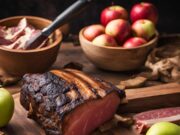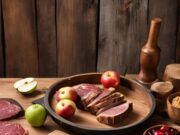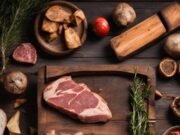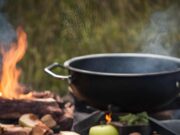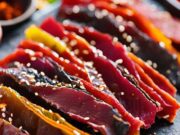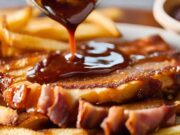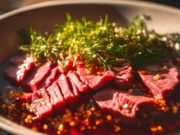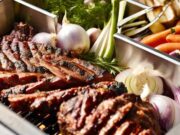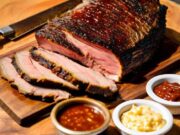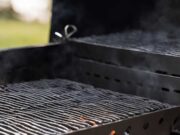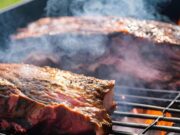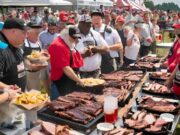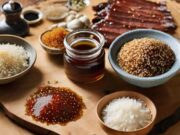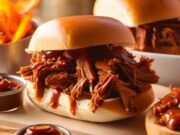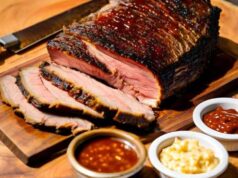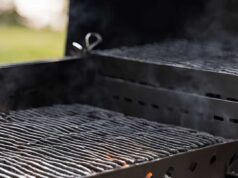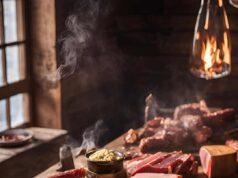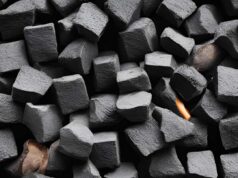Barbecuing is an art that has the potential to transform simple ingredients into exquisite dishes. This guide will uncover the secrets to achieving juicy and flavorful meats, drawing insights from experienced grill masters.
It will explore the science behind moisture and flavor, the significance of fat, and the transformative effects of techniques such as marinating, brining, and slow cooking.
With practical tips on rubs and smoking, you will be well-equipped to enhance your grilling skills and impress your friends and family at your next cookout.
Key Takeaways:
- Marinating and brining are key techniques for achieving juicy and tender meats on the grill.
- The interplay of fat and the Maillard reaction are crucial factors in creating flavorful and succulent BBQ meats.
- Expert grill masters recommend utilizing slow cooking and smoking techniques, along with carefully chosen rubs, to elevate your BBQ game.
The Science Behind Juiciness and Flavor
The science behind juiciness and flavor in meats involves a range of physiological and chemical processes that transform raw ingredients into exquisite dishes. Factors such as fat content, moisture retention, and the breakdown of collagen during cooking play a crucial role in determining the texture and taste of the final product.
By understanding these scientific principles, you can make informed decisions when preparing meats on the grill or in a smoker, ensuring that each bite is both delicious and tender.
The Role of Fat in Flavor and Moisture
Fat plays a crucial role in enhancing flavor and moisture in BBQ meats, serving as a natural carrier for flavor compounds and helping to retain juiciness during the cooking process. Different cuts of meat, such as pork shoulder or beef brisket, contain varying amounts of fat, which significantly impacts both their taste and cooking behavior on the grill or in a smoker.
For example, cuts with higher fat content, like ribeye or pork belly, not only deliver a rich flavor profile but also maintain tenderness throughout cooking. This aspect is particularly important when striving for that perfect smoke ring or caramelized bark, as the fat renders down, infusing the meat with additional flavor and moisture.
On the other hand, certain leaner cuts, while quicker to cook, may lack the juicy characteristics that come from well-marbled meats. Therefore, understanding the nuances of fat content in different cuts is essential for achieving mouthwatering results on the BBQ.
The Maillard Reaction: Unlocking Deliciousness
The Maillard reaction is a complex chemical process that occurs during grilling and smoking, resulting in the browning of meats and the development of rich, savory flavors. This reaction takes place when the proteins and sugars in the meat interact under high temperatures, creating a flavorful crust that enhances the overall taste and visual appeal of your BBQ creations.
Understanding this intricate reaction is essential for anyone looking to elevate their cooking techniques, whether you are a grill master or a barbecue enthusiast. Achieving that perfect crust requires more than just high heat; it also necessitates careful seasoning and precise cooking time.
By ensuring the meat is adequately dried and allowing it to reach room temperature before cooking, you can facilitate the Maillard reaction more effectively with your grill or smoker. This process creates a delectable crust that not only provides texture but also amplifies the essential smoky and charred notes, transforming a simple cut of meat into a mouthwatering centerpiece for any gathering.
Techniques for Enhancing Meat Juiciness
Enhancing meat juiciness requires the application of specific techniques that can significantly impact the final outcome of your BBQ dishes. Two prominent methods for achieving this are marinating and brining, both of which infuse flavor and moisture into the meat.
Additionally, slow cooking plays a crucial role in ensuring tenderness by allowing sufficient time for the connective tissues to break down. Understanding these techniques is essential for any aspiring pitmaster who aims to create succulent and juicy meats.
Marinating and Brining for Tenderness
Marinating and brining are essential techniques that not only enhance tenderness but also add depth of flavor to meats, making them fundamental in BBQ preparation. When you marinate, incorporating acidic ingredients like citrus or vinegar helps break down tough muscle fibers, resulting in a more tender final product. Brining, on the other hand, introduces moisture and flavor through a saltwater solution.
The selection of ingredients is crucial in these processes. Marinades typically include herbs, spices, and oils that complement the natural flavors of the meat and contribute to a well-balanced taste profile. Conversely, brines usually incorporate sugar along with salt, creating a delightful sweetness that balances the savory notes. Different meats, from chicken to pork to beef, can benefit from customized marinades and brines.
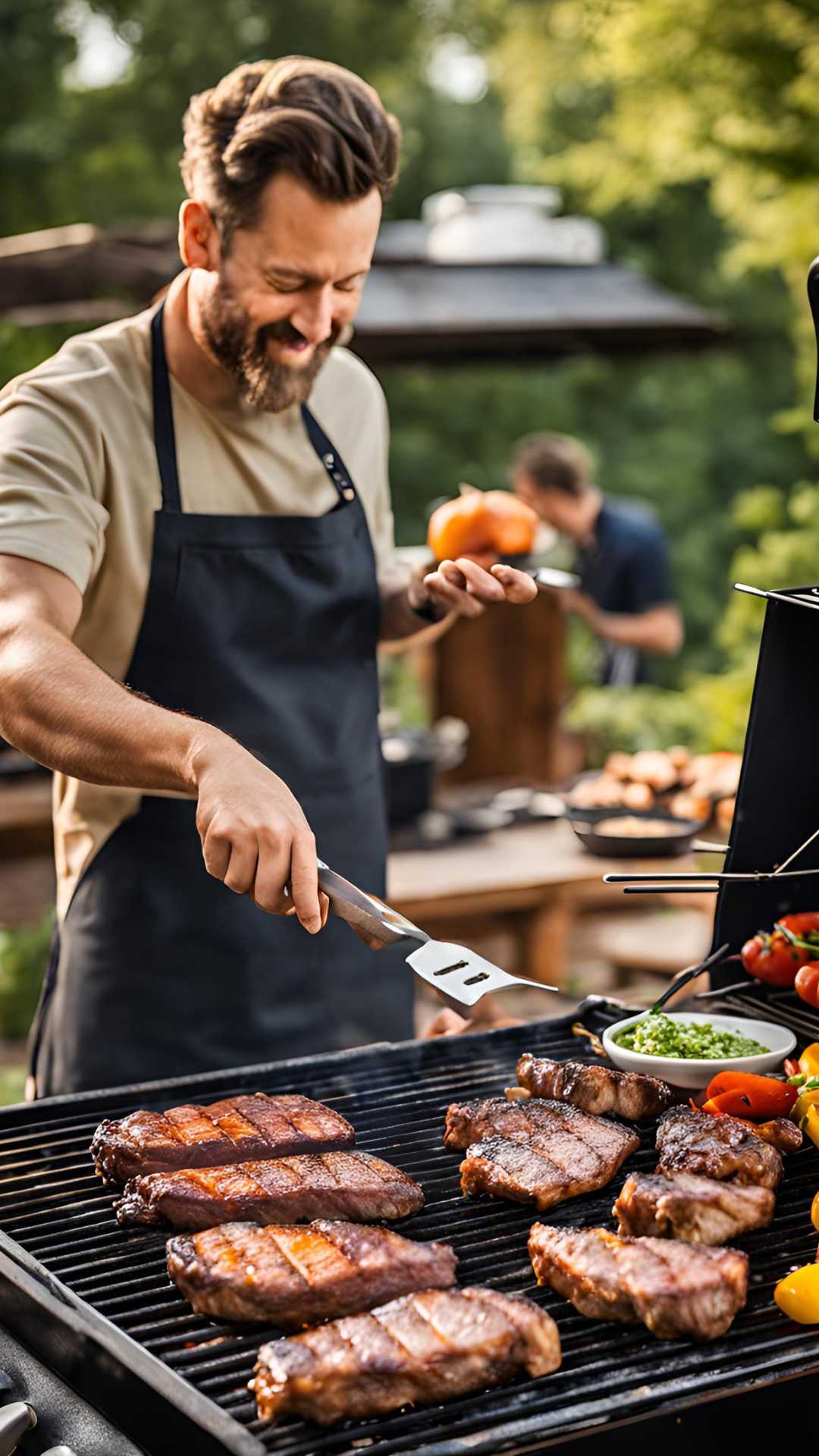
For instance, a zesty citrus marinade is particularly effective for chicken, while a rich marinade featuring soy sauce and ginger pairs exceptionally well with beef. By understanding these dynamics, you can maximize flavor enhancement and ensure a juicy, mouthwatering dish every time.
Slow Cooking: The Key to BBQ Success
Slow cooking is often regarded as the cornerstone of BBQ success because it facilitates the gradual breakdown of fat and collagen, resulting in tender and flavorful meats. This method is particularly effective for tougher cuts, such as brisket or pork shoulder, as the extended cooking time allows the flavors to develop and permeate the meat.
By utilizing low and slow cooking techniques, you can achieve that desirable melt-in-your-mouth texture that keeps BBQ enthusiasts returning for more. It is essential to maintain a consistent temperature, ideally between 225°F and 250°F, ensuring even cooking without drying out the meat. Cooking times may vary significantly based on the size and type of the cut, ranging from several hours to even overnight.
Best practices also suggest using a meat thermometer to monitor internal temperatures, aiming for a minimum of 195°F for optimal tenderness. A well-seasoned rub, combined with the appropriate wood for smoking, can significantly enhance the flavor profile, transforming an ordinary meal into a BBQ masterpiece.
Expert Tips from Grill Masters
Gaining insights from expert grill masters can significantly enhance your BBQ skills, as they frequently offer invaluable tips that can transform your cooking experience.
Whether you are selecting the appropriate BBQ rubs, perfecting your seasoning techniques, or mastering various smoking methods, these professionals possess the knowledge to help you achieve the best results with every cut of meat.
Choosing BBQ Rubs and Smoking Techniques
Choosing the right BBQ rubs and smoking techniques is essential for creating distinct flavor profiles that enhance the natural taste of various meats. Whether you prefer a dry rub packed with spices or a wet marinade, your selection of ingredients can significantly impact the overall flavor of your BBQ. It is crucial to understand which combinations work best for each type of meat.
You must consider factors such as the cut of the meat, the cooking method, and your personal flavor preferences. For instance, a brisket may benefit greatly from a robust rub containing ingredients like brown sugar, paprika, and garlic powder, while chicken might shine with a lighter blend of herbs, citrus zest, and a hint of cayenne.
Additionally, the choice of smoking technique—whether hot smoking or cold smoking—adds another layer of complexity that can transform the eating experience. Techniques like using different types of wood chips can also influence the flavor, imparting unique notes that tailor the BBQ to your taste. This makes the entire cooking process a flavorful adventure.
Frequently Asked Questions
What are some essential tools for a successful BBQ?
To achieve juicy and flavorful meats, you’ll need a good quality grill, tongs, a meat thermometer, and a basting brush. These tools will help you cook your meats evenly and prevent them from drying out.
How do you prepare your grill for BBQing?
Start by cleaning your grill grates with a wire brush to remove any leftover debris. Then, oil the grates by rubbing vegetable oil onto them with a paper towel. This will prevent your meats from sticking to the grill and add extra flavor.
What’s the best way to marinate meats for BBQ?
For juicy and flavorful meats, marinating is key. Make sure to marinate your meats for at least 30 minutes or up to overnight. Use a marinade that contains acid (like vinegar or lemon juice) and oil to help tenderize the meat and add flavor.
How do you achieve perfect grill marks on your meats?
To get those coveted grill marks, make sure your grill is preheated to a high temperature. Place your meat on the grill at a 45-degree angle and let it cook for a few minutes before turning it 90 degrees to create the crosshatch pattern.
What’s the secret to juicy chicken on the BBQ?
The key to juicy chicken is to cook it slowly over indirect heat. Place the chicken on the cooler side of the grill and let it cook with the lid closed. Use a meat thermometer to ensure it reaches an internal temperature of 165°F before removing it from the grill.
How do you add extra flavor to your BBQ meats?
Aside from using a tasty marinade, you can also add flavor by using wood chips or chunks on your grill. Soak the wood in water for at least 30 minutes, then place it on the hot coals or in a smoker box for a delicious smoky flavor.



